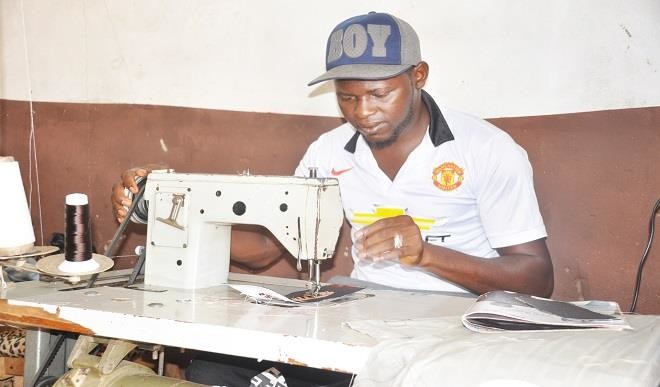Stereotyping unhealthy for children upbringing
What exactly does this project entail? Voices for Change is a Department for International Development (DFID) funded project looking at creating enabling environment for women and girls, but in doing that it takes a creative approach. We work with men and boys, religious and traditional rulers, and media influencers because we know we can’t achieve […]


What exactly does this project entail?
Voices for Change is a Department for International Development (DFID) funded project looking at creating enabling environment for women and girls, but in doing that it takes a creative approach. We work with men and boys, religious and traditional rulers, and media influencers because we know we can’t achieve the kind of change we are looking for except we have an inclusive approach.
I cover the research and evidence beat. In the last two years, we have produced five fantastic researches focusing on masculinity. We chose to do something on masculinity because we felt there is a missing link in the gender discourse, and honestly the research has been very rewarding.
We did one on media masculinity, religion and masculinity, conflict and masculinity, and we had a big Nigerian Men and Gender Equality Survey across the six geopolitical zones. It covered a lot of things, men’s socialization, men and work, relationship with women, wives and children. What we found across all the research was the huge role, stereotype plays in our lives, because of the way society has defined men’s lives.
It is increasingly becoming a challenge for men to live like human beings. We have almost turned them into superheroes which they are not and they are constantly struggling to fit into this box we have created for them. The research has played out the dimensions in which different factors, like religion, conflict and the media, contribute in reshaping the way men behave. The result has been really damaging to men, and women and children as well.
Men tell us they are depressed and find other ways of expressing their emotions. The result culminates in violence; it comes out as men cheaters.
The report was launched in November 2015 across five states and in the UK. The reception has been amazing; people felt it is quite new and fresh. We are sure we are going to be able to deal with the hard nuts in promoting gender equality.
During the launch, many commitments were made: people promised to review the curriculum, change the message at their altars in their preaching, write about the issues, and talk about them at their dining tables and offices. A lot of mind-sets are changing; people’s way of programming is changing.
We think all of these things will help us achieve a better gender equitable society. Apart from tracking online and interactive workshop to find out what people have done, we found a need to get a cluster of traditional, social media, religious groups to make them sit under one roof with these five reports.
After the five reports were produced, we synthesized them into a single Being a Man in Nigeria Report. So the Evidence and Mining Workshop is to help people tease things out of these reports, people are things they can use to change the way they are programmed.
We are promoting a culture that uses evidence, because what we see is that reports are produced and they just sit on the shelf. We are hoping people will be able to come up with sermon notes or guides, cartoons, whatever suits different clusters so that we can share with the larger community. Whatever it is, we have to build a critical mass that will value evidence.
What was the most striking point in all five reports?
I found a lot of factors are responsible for what men do. A man said, for example, even his choice of career was defined by what he watched on TV. Media has a fantastic influence in the way people think. If we continue to promote stereotype as we found, we are just going to keep doing more damage to society. Even conflict, we found, has a way of shaping people. You won’t tell me the way people in the North-east lived in the last 10 years is still the same way they live today. You will see that men, and even women, have had their perspectives shifted.
All of these misinterpretations of religious text are really responsible for the way men behave. The revelation of the extent to which all these factors influence men is something I find really interesting.
Many of us are shaped by culture, religion and other external factors but after this what next?
There is no way a single programme can bring about that lasting change. That’s why we want to engage relevant stakeholders. When we are done, even with Voices for Change, we believe we do have a critical mass that’s going to continue this work. That’s why we are putting all these investment, time, resources to make sure that those who are within the society, whether or not the programme lives, they will continue to promote these values.
